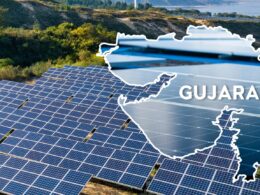At the UN climate summit in Baku, Azerbaijan, a coalition of the world’s leading multilateral development banks (MDBs) has pledged to increase climate finance for low- and middle-income countries to $120 billion per year by 2030. This ambitious target, which marks a 60% increase from previous contributions, aligns with global efforts to cap temperature rise at 1.5 degrees Celsius by 2050. The commitment from 10 MDBs includes a major increase in climate adaptation funding, with $42 billion set aside to help vulnerable nations handle extreme weather—a 70% increase from 2023 levels.
The MDBs involved, including the World Bank, European Investment Bank, and Asian Development Bank, emphasised their essential role in supporting poorer countries, which often face greater financial hurdles in accessing affordable debt. Clare Shakya, global managing director of climate at the Nature Conservancy, highlighted the pressing need for MDB support in these regions, noting that while wealthier nations can typically access cheaper financing, low-income countries are far more reliant on MDBs to fund climate initiatives.
To amplify the impact of their funding, the MDBs intend to leverage their public funds to bring in an additional $65 billion from the private sector. During a panel discussion, World Bank President Ajay Banga stressed the private sector’s role in meeting global climate goals, expressing optimism that private contributions would eventually surpass the $65-billion target as more companies realise the urgency of climate action.
European Investment Bank President Nadia Calvino highlight the importance of mobilising green finance from both public and private sectors, warning that the cost of inaction was increasingly evident to businesses. “We can spend time discussing issues, but it’s better to work together to mobilise green finance, achieving maximum impact on the ground,” she said.
However, the MDBs cautioned that reaching these targets would require increased commitment from shareholders in both developed and developing countries. The group’s statement highlighted the need for an expanded pool of concessional funds and grants, increased internal resources, and additional capital to unlock further MDB financing for public goods and policy initiatives.
A US official at the summit praised the MDBs’ efforts, emphasising that their commitment is vital to achieving the global climate finance framework. “The ambition set by MDBs today is crucial,” the official remarked, acknowledging their role in exceeding the previous $100 billion climate finance target.





















